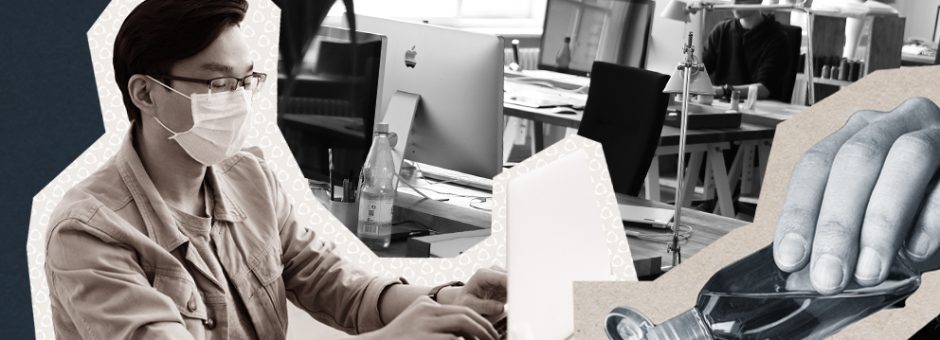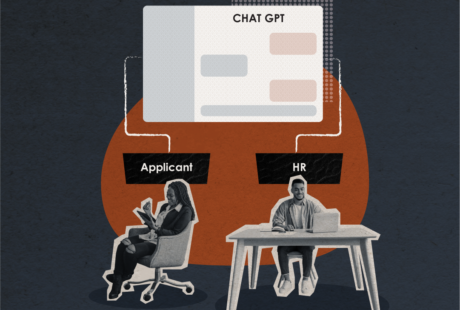Judy Slutsky is Goldbeck Recruiting’s Certified Professional Human Resources consultant.
HR professionals are facing an unprecedented period of change, and they’re having to navigate the issue of COVID-19 from a distance. From the beginning of widespread remote work in March 2020 to the present, the virus and our adaptation to this new normal has placed what can feel like an insurmountable demand on HR teams as they endeavor to write, enact, and enforce COVID-19-proof policies and protocols with the critical aim of keeping employees safe.
These responsibilities are integral to the healthy functioning of workspaces and companies, as well as proper adherence to provincial and federal requirements. However, British Columbia’s Human Resources teams are stacking up extremely well.1 But the road ahead remains daunting, and HR teams will have to balance immense responsibility to safely fortify Canadian businesses as we continue to live with COVID-19.
Is Mandating Masks a Human Rights Issue?
In Ontario, anti-maskers (more formally titled MAD, or Mothers Against Distancing) have engaged in weekly dance parties and group events which prohibit the wearing of masks and social distancing.2 The organizers reportedly believe that bylaws which require citizens to wear masks in order to slow the spread of the deadly COVID-19 infringes upon their human rights. Leaving aside the obviously dangerous and misguided travesties manifested by such groups, the question of mandating face masks is an important one for HR teams to consider.
The law is ambiguous—you may not be legally required to wear a mask, but a business may not be legally required to serve you without one, for example—but HR teams have set to work navigating this complicated issue. I’ve written policies, for example, which require employees to wear masks in common use areas and in areas like offices where physical distancing cannot be observed. Through this process, I’ve been in touch with the Human Rights Coalition to ensure we’re adhering to the laws already in place. One of the biggest challenges has arisen in writing policy to accommodate people that cannot wear masks because of medical issues.1
By law, employees are not required to disclose any medical condition to their employer. But in order to obtain exemption from mask requirements, they need to. It’s not HR’s role to delve into the private lives of employees, but questions around reporting requirements and the disclosure of medical issues are more pertinent than ever.1 For example, should an employee be required to disclose contact with a COVID-19-positive person—even if that contact was on a weekend, well outside the purview of work hours? Should employers require that employees who use transit wear masks at all times in the office?
HR’s role is to protect the health and safety of all workplace employees and as a result, there is a requirement to adhere to COVID public health and safety protocols in the workplace.
These are only some of the challenges faced by HR teams writing policies at this moment. The difficult reality is that without precedent, no one can truly have the infallibly right answer.
Dealing with COVID-19 Bias in the Workplace
We’re also figuring out how to control for bias in the workplace against people that either have tested positive for COVID-19, or those who merely have cold-like symptoms which are unrelated. For many employees, proximity to a coworker with an allergy-induced sniffle is enough to cause serious workplace tensions. So, what should this protocol look like? To begin, if someone manifests any symptoms of illness, we require them to use the online BC COVID-19 Self-Assessment tool, and follow the recommendation of that tool, whether that means isolating, getting tested, or even quarantining. Then, if the diagnostic test comes back positive, we will require them to disclose that to HR for internal contact tracing. But again, this is an unprecedented request for access to private information.1
Managing workplace tensions and anxiety as employees return to the office is difficult for these reasons and more. I recommend the use of a purpose-built employee survey not only to identify employee safety concerns which may be addressed (for example social distancing from co-workers) but to create personalized accommodation for employees to ensure everyone feels they can perform well in their roles safely. For example, some people may request a permanent remote work set-up if they identify as a high-risk person, or if they are the primary caregiver for a high-risk family member. It’s important to make accommodations wherever possible, just as we would for another health condition in pre-COVID-19 times.1
HR Should Prepare for Widespread Policy Change
Is the employer liable for injuries sustained while working remotely? Who should pay for ergonomic workstation assessments and accommodations? Who should pay for the requisite fourteen days in isolation following a voluntary vacation abroad? And what will become of Group Health Benefits if there is no actual “group” to speak of? We are still in the early days of responding to this pandemic, but in the coming months I believe we will see insurance companies seek to pivot and capitalize upon the new realities of the modern workspace, which is presently very dispersed.1 What these changes will look like is still unclear, but HR teams should be gearing up for systemic, functional changes to group health benefit plans.3
These issues are living ones, and they will continue to shift and change perhaps faster than HR professionals across Canada can keep up. But looking ahead, the clearest challenges seem to emerge around issues of employee privacy, the cost and insurance implications of maintaining a remote workforce and rewriting company policy to accommodate complicated employee circumstances. We want to set employees up to perform as best they can in their role. Right now, that means companies and HR teams need to demonstrate a lot of empathy for individual circumstances balanced with protocols needed to keep people safe at work.1
Cited
1 Personal communication between Judy Slutsky and Rose Agency, September 11, 2020.
2 Anti-Maskers Are Returning to Cherry Beach This Weekend for an All-Night Party. https://www.blogto.com/city/2020/09/anti-maskers-returning-cherry-beach-weekend-all-night-party/. Accessed 11 Sept. 2020.
3 GroupHEALTH. “COVID-19 Has Changed the Employee Benefits Experience.” Accessed September 11, 2020. https://www.grouphealth.ca/portfolio-items/covid-19-has-changed-the-employee-benefits-experience/.





1 thought on “HR Challenges and COVID-19”
Comments are closed.